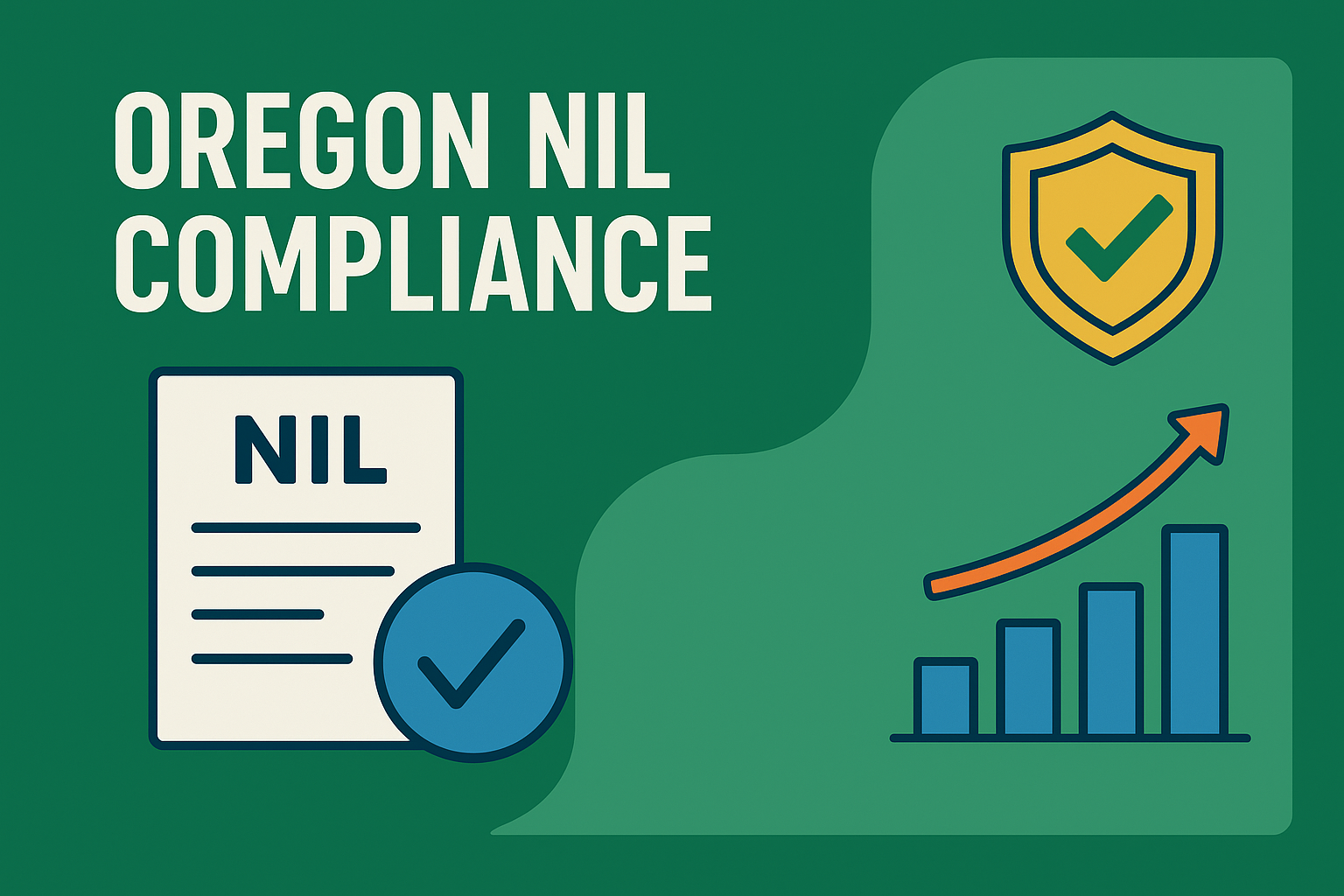This is not legal advice, but general information.
The last four years of college sports have seen a wave of new regulators enter the NIL scene. These authoritative bodies range from schools, to special clearing houses, to the Executive Office, and each has their own set of mandates or guidance to go along with them. So when people ask “which rule applies?” the answer is usually much more practical than theoretical. It also largely depends on who’s likely to enforce the issue and where the activity actually takes place.
This scattered framework has made creating a one-size fits all compliance guide nearly impossible, so instead it’s inspired me to create an article that is solely geared toward my Oregon student athletes. It’s intended to give you a broad overview of NCAA guidance, relevant federal proposals, IRS publications, and policies of some Oregon schools, while also taking time to briefly discuss Oregon NIL statutes. The goal is to ultimately leave you with an understanding of how each of these rules interconnect with one another and make decisions with a full view of what actually applies to you. Let’s dive in.
Five things every Oregon student athlete should know:
NIL in Oregon offers plenty of opportunity, and the laws generally favor student athletes. But knowing how to navigate it makes all the difference. As an Oregon attorney and former student athlete myself, I want to ensure current Oregon-based athletes have the practical tools to understand the market they’re entering. Below are key points every NIL deal should be tested against, all tied directly to Oregon law, IRS and NCAA guidance, and each school’s published policies.
1. Report NIL income to your school’s compliance office and follow its review process.
Oregon codified its NIL rules under its statutory framework in the Oregon Revised Statutes (ORS) Section 702. These rules touch on several different things, but what’s noteworthy for purposes of this article, is its requirement that student athletes disclose all NIL agreements to their schools. This requirement is similar to the NIL Go clearinghouse requirements discussed in my last article, except unlike the clearinghouse there is no explicit $600 minimum for reporting. To know the specifics of what your school requires, read through your schools NIL rulebook and consult a qualified attorney or your compliance office.
Because multiple rules and organizations can affect a single deal, it’s important to put agreements in writing, submit them to compliance, and get acknowledgment up front. This ensures you’re protected if questions or conflicts arise later.
2. Treat NIL earnings as taxable income and plan accordingly.
Income from NIL activities is generally subject to federal and state taxes and governed by the IRS. In many cases this can include self-employment tax, reporting of income on tax forms, and potential estimated tax payments. Because the tax treatment of NIL income can vary depending on individual circumstances, it is important to keep thorough records and seek guidance from a qualified tax professional who is familiar with self-employment and multistate tax issues.
3. Know your school’s approval workflows and follow them.
Universities aren’t legal advisors, but they are permitted to provide their student athletes NIL educational resources. In fact, many schools, such as Oregon State University and Portland State University, have at various times published their NIL policies online. Others, like the University of Oregon, offer legal clinics through their law schools. Whatever your school provides, use it. Resources given directly from institutions will often times be the most reliable when it comes to understanding the university’s policies and guidelines.
4. Watch for category limits and institution-related conflicts.
Even where state law might be permissive, it’s common for universities to prohibit endorsements that conflict with team sponsorship agreements or institutional codes of conduct. Many schools and statutes also single out categories such as alcohol, tobacco, firearms, or sexually explicit products. For Oregon student athletes, ORS 702 doesn’t specifically rule out these types of categorical engagements, but it does permit universities to prohibit them. Refer to both ORS 702 and your school’s policies before agreeing to category-based sponsorships or deals using school marks. (NOTE: A majority of schools now have both an NIL policy and a general Student Code of Conduct. These tend to work together, so ensure you reference both when making decisions on deals.)
5. Plan for multi-state reporting and tax implications when work crosses borders.
If you earn money for appearances, content creation, or other NIL activities while physically working in another state, that state may treat the payments as in-state source income and may require withholding or a nonresident tax return. Keep thorough records of where your engagements occur, the compensation you receive, and how time is allocated. And in most cases, consult a tax professional about state filing and withholding obligations.
Ultimately, the law here in Oregon is favorable to student athletes, but compliance missteps with your school, the IRS, or another state can create real problems down the line. If you keep these five points in mind, you will be better positioned to protect your eligibility, maximize your earnings, and avoid costly surprises. Oregon athletes have the tools to succeed in this new market as long as they approach it with the same discipline they bring to competition.
Some practical advice.
Considering that NIL is slowly inching closer to employment law, it only makes sense that they share similar advice: document everything. If you’re managing multiple deals or even just a one-off, keep track of your arrangements. Key items to record include the party or parties you’re working with, the consideration, the date signed, your performance obligations, whether the deal uses institutional marks or facilities, whether compliance approved it, and whether it was reported to any external clearinghouse.
And on a similar note, many athletes may be tempted to rely on the marketplace platforms that may be available to them because since centralize payments and paperwork. However, despite how handy these platforms can be, it’s still important to keep your own copy of every contract and any email trail showing compliance and review because you’re ultimately the one who will be affected if things go wrong. Organized records make it easy to prove compliance if questions arise and protect your eligibility while allowing you to focus on performance.
A few closing thoughts.
Compliance is legal hygiene and insurance for your eligibility and future earning potential. Because state law, federal proposals, settlement related enforcement, and agency guidance now intersect, proactive planning matters that much more. Document your deals, report them to the right offices, and get trusted counsel when things start to feel out of your depth.


